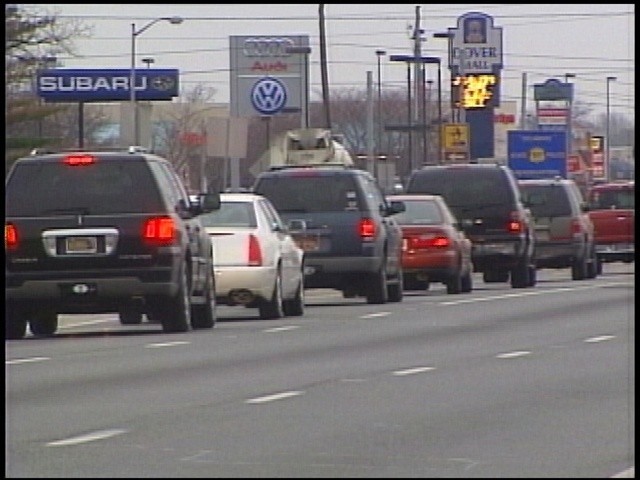WASHINGTON (AP) -- Gridlock in Washington will lead to gridlock across the country if lawmakers can't quickly agree on how to pay for highway and transit programs, the Obama administration warned Tuesday.<br />
<br />
States will begin to feel the pain of cutbacks in federal aid as soon as the first week in August - peak summer driving time - if Congress doesn't act, Transportation Secretary Anthony Foxx said in a letter to states. That's because the balance in the federal Highway Trust Fund is dropping and will soon go below $4 billion, the cushion federal officials say is needed for incoming fuel tax revenue to cover outgoing payments to states.<br />
<br />
The cuts will vary from state to state, but will average about 28 percent, Foxx said at a breakfast with reporters. By the end of August, the trust fund's balance is forecast to fall to zero and the cuts could deepen.<br />
<br />
Obama raised the issue briefly in a Cabinet meeting, and was expected to expand on it further at an event at Washington's Key Bridge later in the day.<br />
<br />
"We could potentially put people to work all across the country, rebuilding roads and bridges, putting construction workers back to work. That could boost our economy enormously," Obama told Cabinet members. "And now is the time to do it, but that requires congressional action."<br />
<br />
Revenue from federal gas and diesel taxes continue to flow into the fund, but the total is expected to be about $8 billion short of the transportation aid the government has allocated to states this year. Over the next six years, a gap of about $100 billion is forecast if transportation spending is maintained at current levels.<br />
<br />
At the same time, transportation experts and industries that depend on the nation's highways to get their products to market are calling for greater spending on transportation to shore up aging roads, bridges and tunnels and to accommodate population growth.<br />
<br />
"This cliff is coming. I've been saying this for six months and I worry that we may be running over it," Foxx said.<br />
<br />
Already some states are cutting back on construction projects because of the uncertainty of federal funding, he said.<br />
<br />
Communities depend on federal aid to get large, important projects done, Foxx said, but "projects aren't even being put on the table - projects that will reduce congestion, projects that will improve the quality of life."<br />
<br />
The reason for the shortfall is that revenue the federal 18.4-cents-a-gallon gasoline and 24.4-cents-a-gallon diesel tax haven't kept pace with transportation needs. The taxes haven't been increased in more than 20 years, while construction and other costs have continued to go up.<br />
<br />
The most obvious solution is be to raise fuel taxes, which is what several blue-ribbon commissions have recommended and business groups like the U.S. Chamber of Commerce and the American Trucking Associations have urged. But neither party or the White House wants to get out front on a proposal to raise taxes in an election year. Foxx didn't rule out Obama signing legislation that raises the gas tax, but he indicated the administration doesn't believe there is enough support in Congress to pass a gas tax increase.<br />
<br />
"We have said if Congress acts on something, we'll keep an open mind," Foxx said.<br />
<br />
Instead, the administration is pushing a plan to close tax loopholes and use the revenue to pay for increased transportation spending for the next four years.<br />
<br />
"We have a proposal we think is politically acceptable," Foxx said.<br />
<br />
House Ways and Means Committee Chairman Dave Camp, R-Michigan, floated a similar proposal in April. But many Republicans say they'd rather offset increases in transportation spending with cuts to other government programs rather than tax increases. And many lawmakers have said they would like to continue to the trust fund's "user pays" principle by raising money from people who most use the roads, if not through a gas tax then some other means.<br />
<br />
Nearly dozen proposals to address the problem have been floated in Congress, but lawmakers have been unable to settle on a solution that's politically acceptable to both parties.<br />
<br />
House Republicans recently proposed a short-term patch based on savings associated with ending Saturday mail delivery by the postal service. The plan died a quick death when it became clear that many GOP lawmakers wouldn't support it.

http://accesswdun.com/article/2014/7/276675
© Copyright 2015 AccessNorthGa.com
All rights reserved. This material may not be published, broadcast, rewritten, or redistributed without permission.

